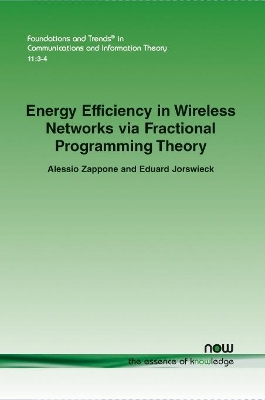The modern world of ubiquitous communication devices has fueled recent research into the need to find technical solutions to address energy consumption concerns raised by various stakeholders. These include:
- The exponential increase of connected devices that wireless communications have been experiencing poses serious sustainable growth concerns.
- The rapid expansion of wireless networks causes environmental concerns.
- Economic concerns drive the development of novel energy-efficient ICT.
This monograph focuses on energy-efficient wireless network design, including resource allocation, scheduling, precoding, relaying, and decoding. Starting from simple point-to-point (P2P) systems and then gradually moving towards more complex interference networks, the energy efficiency is defined and its properties characterized. The authors show how the energy efficiency is naturally defined by fractional functions, thus establishing that a key role in the modeling, analysis, and optimization of energy efficiency is played by fractional programming; a branch of optimization theory specifically concerned with the properties and optimization of fractional functions.
The monograph introduces fractional programming theory, and illustrates how it can be used to formulate and handle energy efficiency optimization problems. It provides a comprehensive introduction to the theoretical and practical aspects of these problems and describes the solutions offered with this technique. It will be of use to all researchers and engineers working on modern communication systems.
- ISBN10 1680830422
- ISBN13 9781680830422
- Publish Date 11 June 2015
- Publish Status Active
- Publish Country US
- Imprint now publishers Inc
- Format Paperback
- Pages 234
- Language English
- URL https://nowpublishers.com/article/Details/CIT-088
